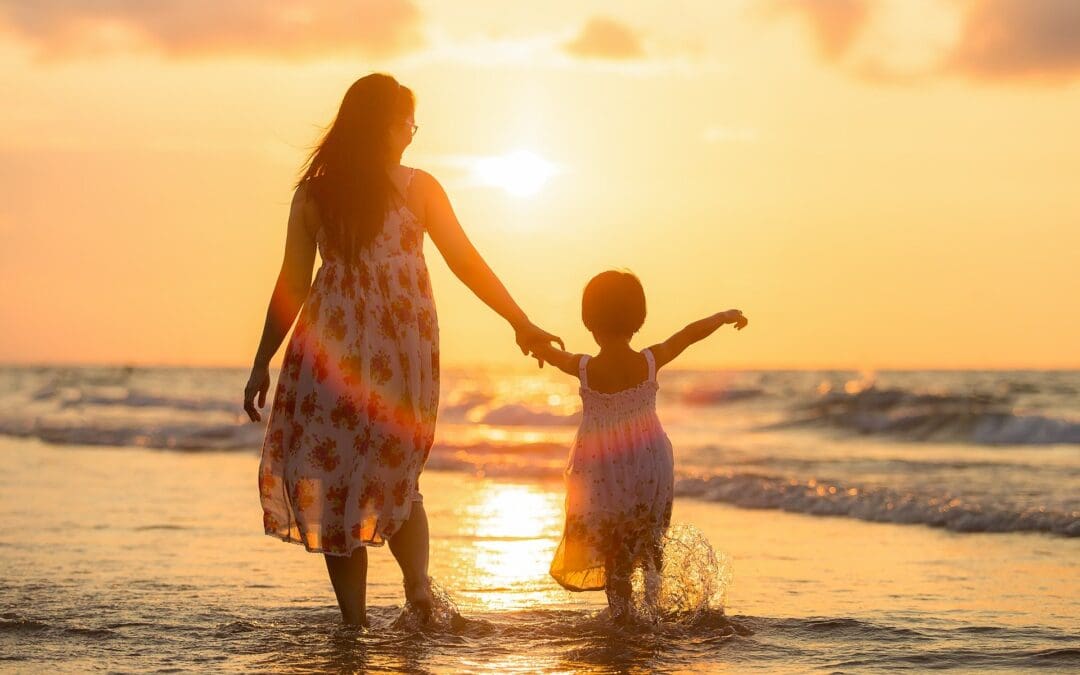The following is a guest post from one of our subscribers.
The gift of life is something that’s discussed in the early passages of the Bible. As the book of Genesis says, God made man in His image, granting him incredible value and worth. Unfortunately, our society doesn’t extend this vale to human life in the womb. Each year there are close to one million abortions in the United States.
The sanctity of life must be upheld in any circumstance, as people are alive the moment they are conceived in their mother’s womb. You may understand this, but do your children?
Children learn differently depending on how old they are. Angie Walston, a human development and family studies instructor at Maryville University, describes how proactive parenting strategies require nurturing a deeper compassion towards children. Learning about infant and toddler development and child psychology can help you gain a better understanding of how to communicate with and teach your children.
Here are the best ways you can teach your kids to value the gift of life.
Preschoolers (3-6 y/o)
At this age, children are too young to understand the full meaning of words. Therefore, it’s better to be more practical about your approach. Research shows that they’re more likely to absorb the material if it’s presented in a fun, engaging manner.
Here’s an idea: bring a bottle of bubbles with you and take them outside. Blow some bubbles into the air and encourage your kids to pop them, or simply catch them in their hands. Ask about how the bubbles feel against their skin, what’s inside it. Air, they might tell you. But the real answer is life.
Much like we breathe air into bubbles that was how God filled us with life. Bubbles, like humans, are fragile. Therefore, they have to be treated with care. You can use the same metaphor when you’re using eggs for baking or any other fragile object. Helping children understand how fragile life is from an early age will ensure they carry this knowledge growing up.
Young Children (7-9 y/o)
According to UNICEF, this is the prime age where children learn everything through play. From cognitive knowledge to life skills, it’s only when they can use their imagination to reenact circumstances in real life (or in their head) that they can internalize teachings best. If you want to instill the value of sanctity at this level, then it is best to do it in a narrative and playful format.
A good example is to play house. Buy them dolls and other toys that they can use to emulate the feeling of caring for a child. Explain to them the love that goes through the hearts of every parent when they hold a child in their arms, and the sadness they would feel if they never got the chance to share this love.
Preteens (10-12 y/o)
Preteens are old enough to be taught at a conceptual level. In fact, Lila Rose, the founder and president of pro-life organization Live Action, recommends that every preteen parent introduce their children to St. John Paul II’s Theology of the Body. This is a reading that answers questions such as what it means to be human and the real purpose behind marriage.
Understanding the Theology of the Body teaches us how our bodies and, by extension, fertility is a gift. The act of making love is a way of deepening the union between man and woman””and the child that is produced by the action is a product of love. To deprive the child the chance to see the world is synonymous with denying not just God’s creations, but also the love He has given us.
Teenagers (13 y/o and above)
Take those concepts you introduced at a preteen level and start attaching them to real-world examples to inspire your older, more discerning child. Moreover, with their exposure to global issues on social media this is a perfect opportunity to teach them the value of human dignity.
“Worth isn’t bestowed by either society or the individual,” emphasized Arthur Dobrin, an ethics professor at Hofstra University. “It’s part of what it means to be human, the necessary understanding of how people treat one another not as objects””tools””but as subjects””ends in and themselves.”
To be pro-life is to see the value in all humans, regardless of their ethnic background or gender. This is especially timely considering the issues brought up this past couple of months. Encourage them to keep an open mind, and even to contribute what little they have to bigger causes.
Every child learns differently, but parents can help instill a deep respect for the sanctity of human life at an early age. They also can build an environment of love and compassion, where a child knows that they could bring an unplanned pregnancy home and receive the help needed to choose life.

